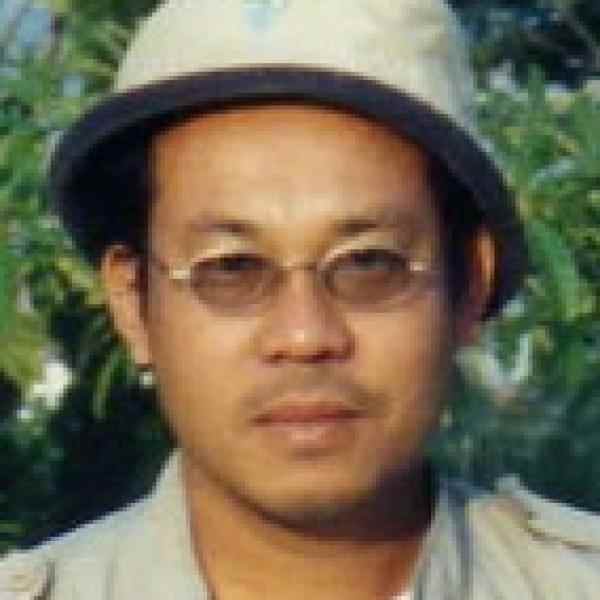Introduction
In some of Thailand's most threatened natural resource areas, Payong Srithong is combining modern farming techniques with local wisdom to help farmers reconnect their livelihood with the health of their natural environment.
The New Idea
Payong is providing some of Thailand's poorest villagers with the information and technical training they need to make informed choices about how best to use their local natural resources. His comprehensive approach involves more than just technical training at the community level. By establishing locally-based "barefoot laboratories," Payong is systematically developing new techniques and compiling a body of local knowledge to assist in environmental and resource management. His work bridges community development work, technological and academic know-how, and the fundamental needs of Thailand's poorest communities. Payong has received acclaim for developing innovative, practical solutions that benefit the natural environment and the people living in it equally.
The Problem
Owing to a variety of factors, the ecosystems of Thailand's upland areas are under considerable strain. Seven hundred-fifty thousand members of indigenous hill tribes have been pushed into increasingly smaller areas of their traditional forests as land is taken away by outside timber or agricultural interests or by the government for national parks. The recent economic recession in Thailand has put an even greater strain on the forested highlands, as lowlanders encroach. Both groups face extreme poverty in these unfamiliar and challenging natural surroundings. The plight of these people has not gone unnoticed by international donor agencies, but assistance has focused on issues such as citizenship, human rights, and drug trafficking. Scientific and agricultural research suggesting viable land-use solutions has received little attention or funding. As a result, sustainable farming practices have not been adapted to this area, resulting in an increasing strain on natural resources each year.
The Strategy
Initially, Payong set out to prove the value of locally-based scientific research by setting up his project in a high-profile watershed area drained by three of Thailand's major rivers. Adding to the site's strategic importance and international visibility, it borders a well-known national park, the UNESCO-designated World Heritage Huay Kha Khaeng Wildlife Sanctuary.
Payong's strategy ensures that a range of challenges facing this upland ecosystem are considered. He does not aim to dictate solutions; rather, he helps local people carry out research, the results of which will be helpful to them in designing solutions appropriate for the local environment. In his village of Saphanburi, Payong has convened a community forum, or Ashram, that considers new technologies, ecological findings, and the philosophy of sustainability. The community selects the most appropriate techniques based on their needs and the availability of resources.
The practical solutions Payong has developed in coordination with the local people are wide-ranging. For example, using soil analysis, he has helped Karen hill tribe villages in this area improve alley cropping and fruit tree-based agroforestry. This has allowed the villages to expand dramatically their cover crops and green manure production. He has taken these lessons to Karen people living in villages across the north, including the area along the Thai-Burmese border. For another project, Payong has developed the region's first locally-based gene bank. In addition to collecting hundreds of varieties of local seeds, he is gathering fruit germ plasms of plants that are now threatened by changing land-use patterns and urbanization. He encourages local farmers across the upland area to regenerate the fruit and preserve these species. In response to the needs of resettled villagers, Payong has engineered new water systems that allow sedentary farming without harming the forests. In addition, he is exploring the income-generating potential of producing tea leaves from a variety of local herbs as well as wild sponge gourd, loofa, wild honey, and dye-producing plants.
Payong is disseminating the results of his varied research initiatives, as well as concrete technical recommendations, through a network of farmers across the north. Because of his rural background and his years of living among the landless poor, he has gained their trust and has become a recognized advocate for their concerns to the government, academics, and civil society workers. He has attracted the interests of universities, donors, and government agencies with the idea of helping farmers replicate the kinds of experimental adaptations he has implemented in his region. Payong welcomes farmers' groups and others to his project site to learn his methodology and techniques.
The Person
Born in 1966, Payong grew up in the province where he now works. His family harvested sugar cane, but sometimes the price dipped so low that Payong and his brothers had to work as sharecroppers just to feed the family. Despite such hardships, Payong developed an affinity for farming and rural life.
An excellent student, he won the opportunity to attend high school in Bangkok, going from there to Thammasat, one of the country's leading universities. Rather than pursuing a career in business or law, as he was academically poised to do, Payong chose to return to his family's province to develop alternative farming techniques. Through his work with Ashoka Fellow Daycha Siripatra, he became aware of the problems of the upland hill tribe villages. Seeing the hopeless situation among these tribal people marked a turning point in Payong's life, and he began an independent project to help people in these communities.
In 1992 he moved to the village, built a house, and began working on a range of problems facing the villagers. Although Payong had no formal training in agriculture, his passion for farming and his analytical prowess enabled him to quickly see what needed to be done. He learned to conduct scientific research and to implement a range of agricultural engineering projects. Most importantly, he taught himself to communicate what he had learned to farmers in clear, simple language. Payong continues to live in the village with his wife and two sons.
